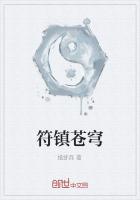Peace or harmony between the ***es and individuals does not necessarily depend on a superficial equalization of human beings; nor does it call for the elimination of individual traits and peculiarities. The problem that confronts us today, and which the nearest future is to solve, is how to be one's self and yet in oneness with others, to feel deeply with all human beings and still retain one's own characteristic qualities. This seems to me to be the basis upon which the mass and the individual, the true democrat and the true individuality, man and woman, can meet without antagonism and opposition. The motto should not be: Forgive one another; rather, Understand one another. The oft-quoted sentence of Madame de Stael: "To understand everything means to forgive everything," has never particularly appealed to me; it has the odor of the confessional; to forgive one's fellow-being conveys the idea of pharisaical superiority. To understand one's fellow-being suffices. The admission partly represents the fundamental aspect of my views on the emancipation of woman and its effect upon the entire ***.
Emancipation should make it possible for woman to be human in the truest sense. Everything within her that craves assertion and activity should reach its fullest expression; all artificial barriers should be broken, and the road towards greater ******* cleared of every trace of centuries of submission and slavery.
This was the original aim of the movement for woman's emancipation.
But the results so far achieved have isolated woman and have robbed her of the fountain springs of that happiness which is so essential to her. Merely external emancipation has made of the modern woman an artificial being, who reminds one of the products of French arboriculture with its arabesque trees and shrubs, pyramids, wheels, and wreaths; anything, except the forms which would be reached by the expression of her own inner qualities. Such artificially grown plants of the female *** are to be found in large numbers, especially in the so-called intellectual sphere of our life.
Liberty and equality for woman! What hopes and aspirations these words awakened when they were first uttered by some of the noblest and bravest souls of those days. The sun in all his light and glory was to rise upon a new world; in this world woman was to be free to direct her own destiny--an aim certainly worthy of the great enthusiasm, courage, perseverance, and ceaseless effort of the tremendous host of pioneer men and women, who staked everything against a world of prejudice and ignorance.
My hopes also move towards that goal, but I hold that the emancipation of woman, as interpreted and practically applied today, has failed to reach that great end. Now, woman is confronted with the necessity of emancipating herself from emancipation, if she really desires to be free. This may sound paradoxical, but is, nevertheless, only too true.
What has she achieved through her emancipation? Equal suffrage in a few States. Has that purified our political life, as many well-meaning advocates predicted? Certainly not. Incidentally, it is really time that persons with plain, sound judgment should cease to talk about corruption in politics in a boarding-school tone.
Corruption of politics has nothing to do with the morals, or the laxity of morals, of various political personalities. Its cause is altogether a material one. Politics is the reflex of the business and industrial world, the mottos of which are: "To take is more blessed than to give"; "buy cheap and sell dear"; "one soiled hand washes the other." There is no hope even that woman, with her right to vote, will ever purify politics.
Emancipation has brought woman economic equality with man; that is, she can choose her own profession and trade; but as her past and present physical training has not equipped her with the necessary strength to compete with man, she is often compelled to exhaust all her energy, use up her vitality, and strain every nerve in order to reach the market value. Very few ever succeed, for it is a fact that women teachers, doctors, lawyers, architects, and engineers are neither met with the same confidence as their male colleagues, nor receive equal remuneration. And those that do reach that enticing equality, generally do so at the expense of their physical and psychical well-being. As to the great mass of working girls and women, how much independence is gained if the narrowness and lack of ******* of the home is exchanged for the narrowness and lack of ******* of the factory, sweat-shop, department store, or office? In addition is the burden which is laid on many women of looking after a "home, sweet home"--cold, dreary, disorderly, uninviting--after a day's hard work. Glorious independence! No wonder that hundreds of girls are willing to accept the first offer of marriage, sick and tired of their "independence" behind the counter, at the sewing or typewriting machine. They are just as ready to marry as girls of the middle class, who long to throw off the yoke of parental supremacy.
A so-called independence which leads only to earning the merest subsistence is not so enticing, not so ideal, that one could expect woman to sacrifice everything for it. Our highly praised independence is, after all, but a slow process of dulling and stifling woman's nature, her love instinct, and her mother instinct.
Nevertheless, the position of the working girl is far more natural and human than that of her seemingly more fortunate sister in the more cultured professional walks of life--teachers, physicians, lawyers, engineers, etc., who have to make a dignified, proper appearance, while the inner life is growing empty and dead.















